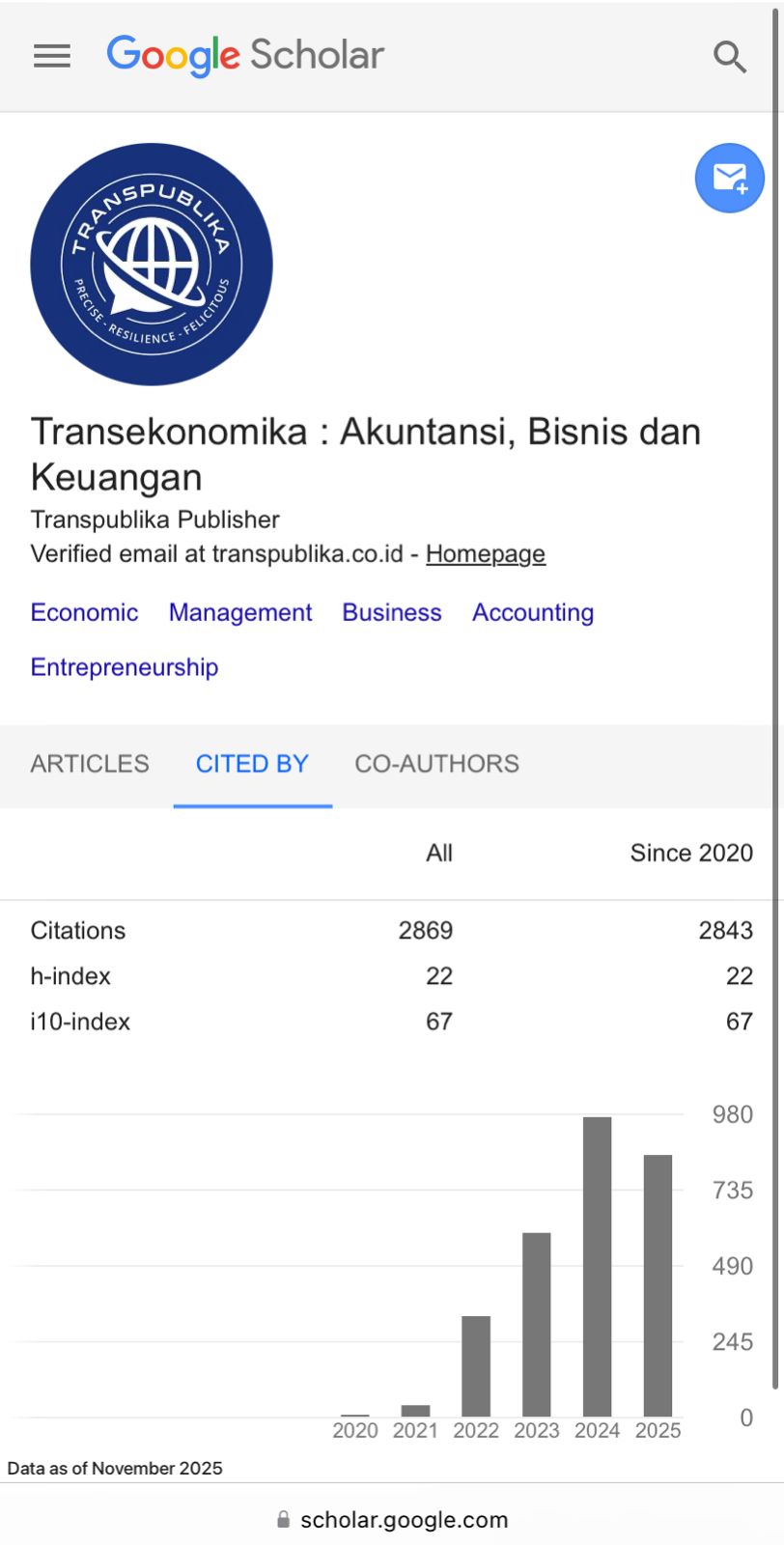STRATEGIES FOR IMPROVING HUMAN RESOURCES THROUGH EDUCATIONAL TOURISM
DOI:
https://doi.org/10.55047/transekonomika.v3i6.599Keywords:
Tourism, Education, Generation, SkillsAbstract
Education is the right of everyone wherever they are, at any age, including economic conditions at any level. The way to obtain knowledge can no longer be limited by anyone and anything nowadays. In this global era, education patterns are increasingly diverse, knowledge transfer activities no longer have to always be carried out in the classroom. The pattern of teaching and learning activities outside the classroom has also been implemented by many educational institutions in many countries, including Indonesia. When teaching and learning activities are carried out outside the classroom, it generally increases interest in learning for students at primary and higher education levels. In this article, we will convey qualitatively the efforts to transfer knowledge outside the classroom in order to increase interest in learning and reduce boredom due to always studying indoors. A two-way interactive atmosphere is one of the effective ways of learning activities to produce better student abilities, in all subjects or certain subjects. The more optimal human resource capabilities are in the future, we can be sure that economic conditions and many other fields will be better and able to compete with other nations.
Downloads
References
Alipour, H., Fatemi, H. & Malazizi, N. (2020). Is Edu-tourism a Sustainable Option. A Case Study of Residents’ Perceptions. Sustainability, 12(5), 1-29.
Ampuero, D., Miranda, C., Delgado, L., Goyen, S., & Weaver, S. (2015). Empathy and critical thinking: Primary students solving local environmental problems through outdoor learning. Journal of Adventure Education and Outdoor Learning,15(1), 64–78.
Bafadhal, A.S. & Hendrawan, M.R. (2019). Exploring the Immersion and Telepresence in Gamified Virtual Tourism Experience Toward Tourist’s Behaviour. Advances in Economics, Business and Management Research, 93, 53–56.
Baum, T, (2007). Human resources in tourism: Still waiting for change. Tourism Management 28(6),1383–99.
Bayati, I. (2012). Transfer of learning in basic ecological concepts during exposure to environmental issues and critical thinking. Correlation of Students’Knowledge and Attitudes toward Food Webs. Science and Technology Issues in Education,5(1-2), 141–152.
Bayati, I. (2014). Lyceum students’alternative perceptions toward food webs. Science and Technology Issues in Education, 7(1-2), 41–58.
Bayati, I. (2015). Students with special education needs: spontaneous perceptions toward nature compared to those of students without special education needs. Science and Technology Issues in Education,8(1-2), 67–90.
Bello, Y.; O. Raja Yusof, R. N. R. (2019). The Contemporary Edu-Tourism Destination Selection Process: A Structural Regression Model. Journal of Tourism & Management Research. Vol 4(2), pp 497-514.
Bilsland, C., Nagy, H. & Smith, P. (2020). Virtual Internships and Work-Integrated Learning in Hospitality and Tourism in a Post-COVID-19 World. International Journal of Work Integrated Learning, 21(4), 425–437.
Bright, A.D., Tarrant, M.A. (2002). Effect of environmental-based coursework on the nature of attitudes toward the endangered species act. Journal of Environmental Education,33(4), 10–19.
Broom, C. (2017). Exploring the relations between childhood experiences in nature and young adults’environmental attitudesand behaviours. Australian Journal of Environmental Education,33(1), 34–47.
Choudhary, L.R., Srivastava, P. & Panwar, L.K. (2022). Educational Tourism: A New Concept of Sustainable Development of Tourism. Special Education, 1(43), 4684-4689
Dembovska, I., Silicka, I., &Ļubkina, V. (2016). Educational Tourism in the Training of Future Tourism Professionals. In Proceedings of the International Scientific Conference. 4, pp 255.
Garrecht, C., Bruckermann, T., & Harms, U. (2018). Students’decision-making in education for sustainability-related extracurricular activities—A systematic review of empirical studies. Sustainability,10(11), 3876.
Gibson, H. (1998). The Educational Tourist. Journal of Physical Education, Recreation & Dance, 39(4), 32-34.
Giefer, M., Peterson, M., Chen, X. (2019). Interactions among locus of control, environmental attitudes and pro-environmental behaviour in China. Environmental Conservation,46(3), 234–240.
Gogoi, S. & Balaji, P. D. (2015). Educational Tourism and its Impact: A Case Study from Kanchipuram,
Gotwals, A.W., & Songer, N.B. (2010). Reasoning up and down a food chain: Using an assessment framework to investigate students’middle knowledge. Science Education,94, 260–281
Haukeland, J., Vistad, O. I., Daugstad, K., &Degnes-Qdemark, H. G. (2013). Educational tourism and interpretation. Oslo: Institute of Transport Economics-Norwegian Centre for Transport Research
Kamdi, N., Jamal, S. A., and A. Nuar, F. I. (2018). A Preliminary Study of Edu-tourist Perceived Values in Edu-Tourism packages. International Journal of Academic Research in Business & Social Sciences. Vol 8(16), pp153-162.
McGladdery, C. A., & Lubbe, B. A. (2017). Rethinking educational tourism: proposing a new model and future directions. Tourism Review, 72(3), pp 319-329.
McGladdery, C.A. & Lubbe, B.A. (2017a). International Educational Tourism: Does it Foster Global Learning? A Survey of South African High School Learners. Tourism Management, 62, 292–301.
Ojo, B.Y. & Yusof, R.N.R. (2019). Edu-tourism Destination Selection Process in an Emerging Economy. Journal of Tourism Management Research, 6(1), 45-59
Poletaeva, O., Moroz, N. & Lazareva, O. (2021). Educational Tourism as an Engine in Learning Foreign Languages. Advances in Economics Business and Management Research, 342–348.
Quezada, R. L. (2004). Beyond educational tourism:Lessons learned while student teaching abroad. International Education Journal, 5(4), pp 458-465.
Sharma, A. (2015). Educational tourism: strategy for sustainable tourism development with reference of Richards, G. (2011). Creativity and Tourism – The State of the Art. Annals of Tourism Research, 38(4), 1225–1252.
Ritchie, B.W. (2003). Managing Educational Tourism. Bristol: Channel View Publications. Ritchie, B.W., Carr, N. & Cooper, C.P. (2003). Schools' Educational Tourism. In Ritchie, B.W. (ed). Managing Educational Tourism. Bristol: Channel View Publications: 130-180.
Van Winkle, C. M., & Lagay, K. (2012). Learning during tourism: The Experience of Learning from tourist’s perspectives. Studies in Continuing Education. Vol 34(3), pp 339—335.








.png)







.png)


.png)

.png)












